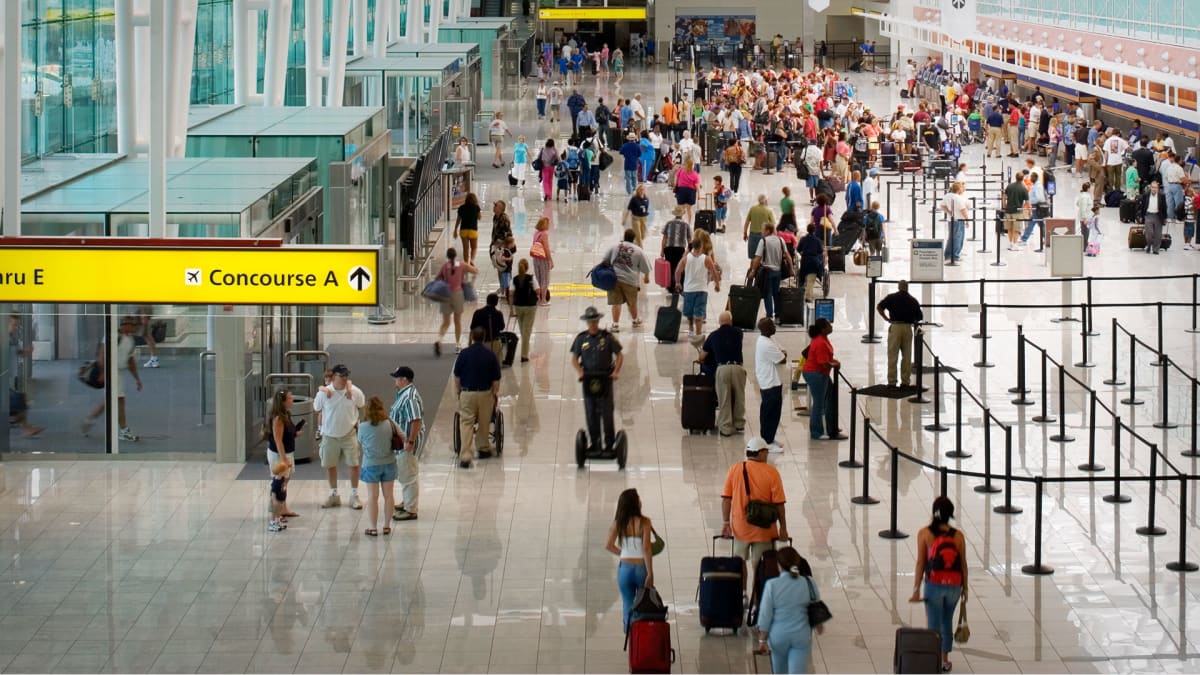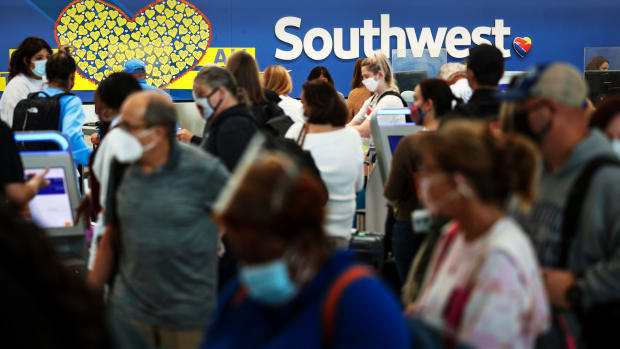
Southwest Airlines (LUV) had a really lousy Christmas season during which it had to cancel two-thirds of its flights. That left passengers stranded, long-time customers angry, and many Americans questioning whether they could trust the airline.
That's a pretty rough position for a company that before the covid pandemic had never lost money or laid an employee off. Southwest had built its business around being customer friendly by offering transparent pricing without hidden fees.
The problem (and it's a big one) is low fares and a lack of extra charges mean nothing when the airline does not get you where you are going. Nobody sleeping on the floor of an airport thinks, "well, at least my ticket was cheap," anymore than a passenger on the Titanic would say "sure, we sank, but the orchestra was excellent."
Southwest's problems, while extreme, are not unique. U.S. airlines are late a lot, with only 71.91% of North America flights arriving on time this year, according to data compiled by Cirium. Some airlines are, of course, worse than others, but Southwest was hardly the biggest offender.

Kevin Dietsch/Getty Images
What Is an On-Time Flight?
An on-time flight doesn't actually even have to be on time. The definition Cirium uses contains some wiggle room.
"Airline on-time performance is defined as an aircraft arrival at the gate under 15 minutes of the scheduled arrival time," the data tracking company shared on its website.
So, basically by the standards of normal people, showing up 15 minutes after your planned arrival is late, but that's not how airlines define it. That's a very lax standard when you consider what happens if you show up 15 minutes late for a date or a job interview.
Even using those pretty loose standards, U.S. airlines had what ranged from OK to poor records. Delta Airlines (DAL) led the way with about an 85% on-time rate followed by United Airlines (UAL) at 81.26%, and American (AAL) (78.77%).
Southwest likely benefited from the data stopping on Dec. 15, but through that date, it came in next at 74.68% with Frontier (FRON) (68.99%), JetBlue (JBLU) (67.13%) and Allegiant (66.49%) following.
Spirit (SAVE), which is being bought by JetBlue, was not included in the rankings. That left the bottom to Canadian carriers WestJet and Air Canada with on-time rates of 60.66% and 55.56% respectively, Travel Weekly reported.
Southwest Works to Solve its Problems
Southwest has blamed its mass cancellations on a failure of its technology that was caused by the extreme weather in the northeast. The airline canceled about two-thirds of its flights on Dec. 29, but said it expects a return to normal operations on Dec. 30.
"We are encouraged by the progress we've made to realign crew, their schedules, and our fleet. With another holiday weekend full of important connections for our valued customers and employees, we are eager to return to a state of normalcy," the airline shared on its website. "We know even our deepest apologies--to our customers, to our employees, and to all affected through this disruption--only go so far."
The airline has set up a web page, Southwest.com/traveldisruption for customers "to submit refund and reimbursement requests for meals, hotel, and alternate transportation; as well as to help connect customers to their baggage."
More Southwest Coverage:
- Southwest Airlines Explains What Went Wrong (and Where the Blame Lies)
- Twitter Reaction to Southwest Air's Epic Failure Reveals Stunning Scenes
- Southwest Airlines Faces Investigation Over Flight Cancellations
- Southwest Flight Canceled? How You Might Be Able to Get Home
- Can Southwest Air Stock Take Flight Despite Cancellations?
- What to do if Your Southwest, Alaska or Other Flight Gets Canceled
- FAA Has Serious Southwest Airlines Safety Concerns







